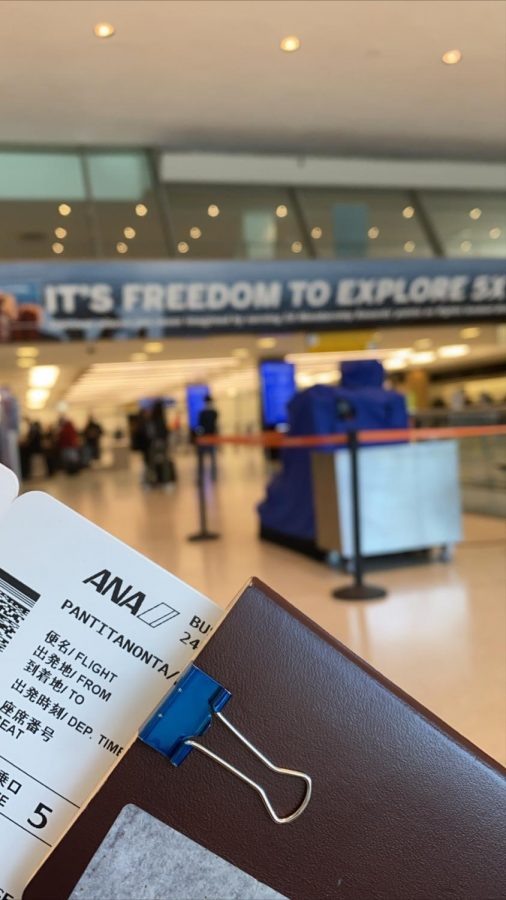Existing Internationally in the Time of a Pandemic
COURTESY OF PHILIP PANTITANONTA
Fordham’s international students face time zone differences and a world of uncertainty with regards to whether they’ll be able to return to New York in the fall.
April 28, 2020
If you tried to convince the February version of me to stock up on Clorox and told him that he’ll be meeting his professors through his webcam, he wouldn’t believe it. “The coronavirus is just another flu,” they said. “Why does everybody act as if it will lead to an inevitable death once you catch the virus?” they asked. Back in January, my friend showed me an article on a mysterious disease that had taken hundreds of lives in Wuhan, China. But that didn’t concern me: Wuhan was thousands of miles away, and by the time the virus arrived in New York City, we would be ready to tackle it efficiently. I was certainly wrong. Now, locked up in my house in Bangkok, Thailand, I wonder if I could have done anything to better prepare myself for leaving my friends so soon, and whether I will be able to return to New York for the start of the next school year.
The last time I saw my friends was on March 13. We had dinner in a small Russian restaurant and departed casually, not really expecting to say goodbye. A week later, the city was a ghost town. People fled upstate, over the state lines and across the Atlantic. I was doing just fine in my home in New York, determined not to leave. Packing my things to go back to Bangkok after weeks of hoping it would be all right was mind-numbing. I crossed the Williamsburg Bridge in an Uber and spared one last look at the mighty Manhattan from my airplane’s windows.
I traveled 8,000 miles and finally arrived back home. It was close to midnight, so I stayed up for my 1 p.m. class. My time difference with New York City is 11 hours, yet my heart still beats in its rhythm. It’s hard to connect with your New York friends when you’re 11 hours ahead of them. I woke up at 7 a.m. to sing “Happy Birthday” at my friend’s 8 p.m. Zoom party. I FaceTimed another friend at 5 p.m. and woke her up before either her dog or the sun managed to do so. Whenever I send out a goodnight streak over Snapchat, I receive replies of “good morning,” “good day” or “good afternoon.”
I used to be the rare individual who woke up in a good mood when it was a school day. Now, I struggle to stay optimistic when my classes finish after 1 a.m. Asynchronous classes, which were supposed to help me bear the load, only demotivate me, and I find myself with less and less incentive to actually watch them. It’ll sure be fun catching up during finals week.
The internet connection also poses a problem. I’ve been forced to pay extra in order to upgrade the speed of my home Wi-Fi because it couldn’t support a family of four working from home all at the same time. Still, even with a better internet speed, I failed to register for my major requirement class during registration day because of lagging, and I’m sure I’m not the only one.
School or no school, it is the physical human interaction that I miss the most. I’m an extrovert, and I consider myself lucky to be born in an age that has FaceTime and online group games one click away. When I decided to go on a nostalgic trip and visit Club Penguin, I found it full of college students, equally starved for human connection. And talk about dating — even if your significant other lives four blocks away, they might as well live on the International Space Station. Texting through Snapchat helps, since you can actually see the other person’s face, which somewhat maintains the illusion of them being there with you. The illusion quickly disappears, however, when you realize that they’re watching the sunset while the rain splatters on your window’s glass.
International isolation is not what I hoped for. Sustaining a college schedule with an extreme time difference is hard, but adapting to the new norm of communication is even harder. Every day, I find myself wondering if we can ever go back to the way things were. Yet, I am hopeful that one day I will return to my New York home and see the whiteboard which says, “Hey, Phil! Welcome back!”












